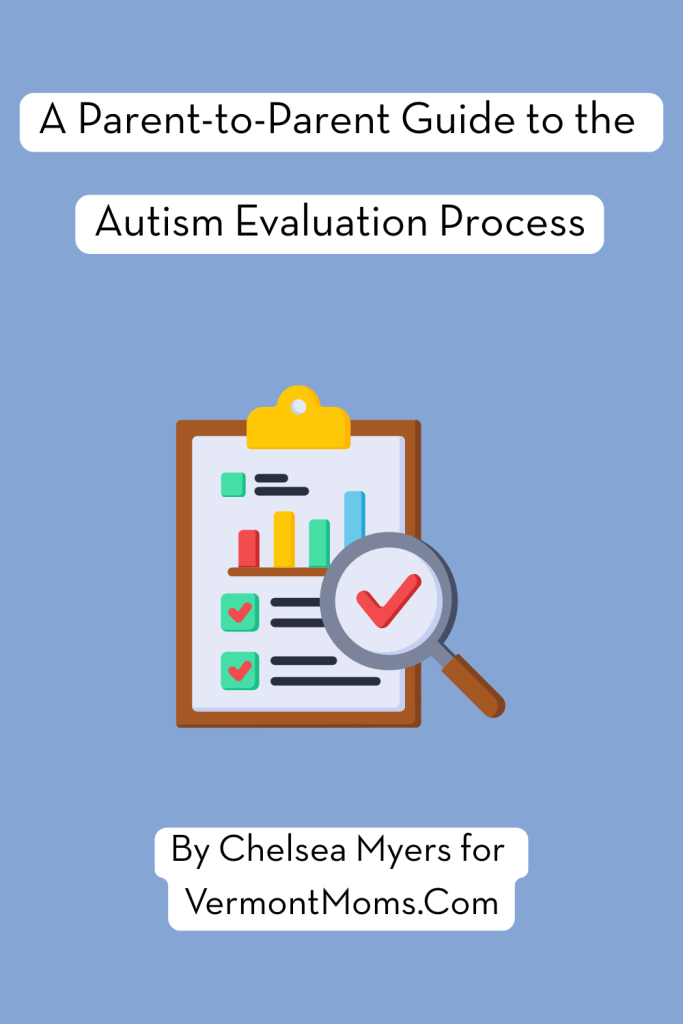As a former special educator, I used to sit across the table from parents and walk them through the autism evaluation process. I explained assessments, outlined support plans, and reassured them that their child wasn’t broken and that no Tylenol or other fault of their own had “caused” this.
I was confident, knowledgeable, and ready to do whatever it took to make sure their child could access whatever tools and resources they needed to further their education.
Now I’m the parent on the other side of that table. And you know what? None of that training prepared me for the heartbreak of watching my own child struggle and not being able to reach her.
“I Should Know What to Do.”
I worked in special education for 10 years. I knew the system well and took pride in meeting each student at their level, even creating lesson plans tailored to their interests. I have participated in numerous evaluation planning meetings, carried out evaluations, contributed to the development of support plans, and passionately advocated for inclusive services.
But when the autism evaluation process is for your own child, nothing feels simple. When it’s your own child, emotions cloud your rational thought, and nothing makes sense.
All my training became background noise when my child melts down, and I can’t reach her. I see the signs I know by heart and still hesitate because I’m terrified of what a diagnosis could mean for her future.
As a neurodivergent parent, I see her through a lens many professionals don’t share. But it doesn’t mean I don’t worry. I worry constantly. Especially knowing that autistic females are underdiagnosed due to presenting in non-stereotypical ways.

The Autism Evaluation Process Isn’t Built for Families Like Mine
We didn’t start this process because we wanted a label. We started because we needed help. My daughter needed help.
And yet, seeking a diagnosis feels like stepping into a spotlight. A vulnerable, scrutinizing lens, especially now, with whispers of a national autism registry making the rounds, and with this bizarre focus on Tylenol.
A registry.
That single word terrifies me. It highlights the double-edged sword of diagnosis: access and risk. I don’t want my child tracked by systems that have historically failed people like us. Traditionally, lists like these have been used to exclude, eliminate, and divide.
This fear is real for many families, especially those who are neurodiverse, marginalized, or already wary of where the state of public education is heading. The autism evaluation process should evoke a sense of relief, not dread, but this is not what my family is experiencing.
What They Don’t See
For numerous reasons, we’re not having our daughter’s evaluation done through her school. She’s scheduled to be seen by a child development team this fall. I wonder, though, when evaluators assess my child, will they see the whole picture?
Will they see how much effort it takes for me to translate our life into their frameworks?
Will they notice the grief behind my “professional” tone? The exhaustion behind my steady eye contact?
Will they know what it’s like to hear your child scream for hours, collapse inward, and agonize over why they are “different”? I can’t pull her back, despite all my knowledge, love, and intention.

Some Days I’m Just Tired
There are days when I don’t want to be the expert. Or the advocate. Or the one who “knows what to do.”
I just want to hold her and cry. I want to see inside her thoughts and finally understand what it is she needs from me to access her coping skills.
It’s gut-wrenching to be a trained educator and still feel like I can’t reach my own child. I want other parents to know: you’re not alone if it feels like this. You are not a failure. You’re a human.
Even when you’ve studied the system. Even when you’re doing “everything right.” Even when you’re holding it all together and still feel like you’re sinking, you are not alone.
What I Want You to Know
- The autism evaluation process is not always neutral. It can carry weight, fear, and sometimes trauma.
- You can love your child fiercely and still feel conflicted about getting a diagnosis.
- You are allowed to feel angry, tired, and overwhelmed.
- You’re doing more than enough, even when it doesn’t feel like it.
We’re Not the Exception. We’re the Future.
Neurodiverse families like mine are common and part of a large community across the country advocating for visibility, acceptance, and understanding.
We deserve an autism evaluation process that meets us with care. A process that listens. One that doesn’t cause more anxiety but instead recognizes our needs. If you’re starting this process, I see you. If you’ve been afraid to begin, I get it. I’m still nervous every day. We don’t have to do it perfectly. We just have to keep showing up.
Pin this post and be sure to follow Vermont Moms on Pinterest!

Vermont Moms Insiders get exclusive content that you do not want to miss, so sign up








